Who are the Chinese people?
What is the meaning of “Descendants of Yan and Huang,” also known as “Yan Huang Zisun” [炎黄子孙] ?
This concept is important to better understand the Chinese people.
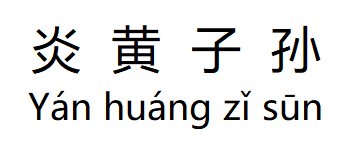
First, who are the "Chinese" or Chinese People? Does it refer to the citizens of China only?
There are at least 56 distinct ethnic groups in China, each with a rich history spanning hundreds, if not thousands, of years. These groups include the Han, Mongol, Tibetan, Uighur, Hui, Miao, and many others.
In our Blog, the term “Chinese” primarily refers to the Han ethnic group, including those living outside of China.
You might assume that the Han ethnicity represents a single group speaking the same language.
However, in reality, the Han encompasses a variety of subgroups, each with its own dialect, cuisine, customs, and traditions. For example, groups such as those from Guangdong, Hainan, Hakka, and Fujian all fall under the Han umbrella. Despite their differences, many Han people share a common belief: they are the biological descendants of Yan and Huang.
The global population of Han people is estimated to exceed 1.2 billion, with over 90% of today’s population in China being Han people.
Some may ask about the term “Descendants of the Dragon.” I believe this is more of a cultural symbol rather than a historical reference.
Now, who are Yan and Huang?
Yan refers to Yan Di, or Emperor Yan, while Huang refers to Huang Di, or Emperor Huang. These figures are associated with a Chinese prehistoric period known as the “Three Sovereigns and Five Emperors.” Yan Di is one of the Sovereigns, whereas Huang Di is the first of the Five Emperors.
There is still debate over whether Yan Di and Huang Di refer to specific individuals or represent a position of leadership that spans multiple generations. For instance, the term “President” can apply to several individuals over different terms of office. Therefore, both Yan Di and Huang Di could represent a lineage of leaders who emerged over an extensive period in history.
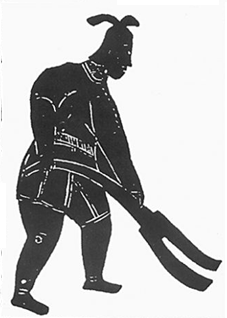
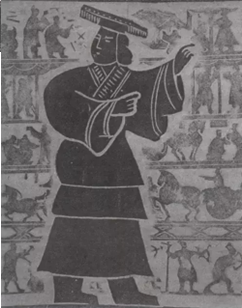
The story begins approximately 5,000 years ago. Yes, it is a story, or a legend... sort of
Yan Di and Huang Di were leaders of the two most prominent tribes in ancient China. Both intelligent figures brought advancements to their respective tribes in culture, technology, agriculture, and medicine, gaining tremendous respect from their people. There are says that both are the descendants of a common ancestor.
Yan Di is credited with reinventing cultivation techniques through the invention of several tools. He taught people how to reclaim wasteland and cultivate new land. Additionally, he developed new methods for pottery manufacturing and invented techniques for weaving, allowing for the production of cloth for his community. His most notable contribution is in herbal medicine, where he personally tested various potential treatments and developed the use of herbs to treat diseases.
Huang Di, on the other hand, enhanced their understanding and skills in celestial calculations, which brought immense benefits to an agricultural society. He established the rule of law. He taught the people how to carve wood to make boats and cut wood to create oars. Additionally, Huang Di improved their skills in silkworm cultivation, ensuring a more reliable supply of silk.
Battle of Yan Di and Huang Di
Yan Di led an older tribe that existed long before the Huang Di tribe. The Huang Di tribe is believed to have originated from what is now Henan Province; they were an energetic and ambitious group that advanced quickly. These two tribes became so prominent that smaller groups felt compelled to join either of them for increased security. With these two titans on the same land, a destined clash was bound to occur.
A long and challenging battle took place over several years, consisting of at least three separate rounds, with Huang Di ultimately emerging victorious. He allowed Yan Di to continue as the leader of his tribe and permitted them to maintain their way of life, which was greatly appreciated by the Yan Di tribe.
Battle with Chi You
There is a powerful tribe from the east known as the “Jiu Li,” led by a figure named “Chi You.” He initiated wars against Huang Di with the aim of taking control of the central plains. Chi You is infamous for his brutality and formidable combat tactics.
Anticipating a challenging confrontation, Huang Di sought assistance from Yan Di. In the interest of the common good, Yan Di and his tribe agreed to fully support Huang Di in the war.
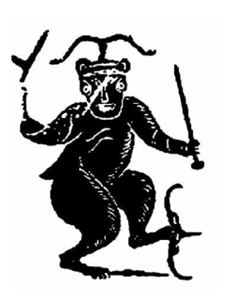
After several rounds of fierce battles, the alliance of Huang Di and Yan Di emerged victorious. Some members of Chi You’s group were integrated into the alliance, while others were exiled to the southwest of China, eventually evolving into several distinct ethnic minorities.
Over the course of thousands of years, through wars, migrations, and environmental changes, many individual ethnic groups have merged into the Han People. As a result, the Han has evolved into the large ethnic group we recognize today.
Emperor for all the Chinese People
Huang Di became the undisputed ruler of the Yellow River Valley. He lead not only the Yan-Huang alliance but also other tribes that practiced their respective languages, customs, and traditions. Ancient literature often refers to this new dominant ethnic group as the Hua Xia. During the Han Dynasty (202 BC – 220 AD), the government officially named this ethnic group the “Han People,” a designation that continues to be used today.
Mausoleum of the Huang Di
According to legend, Huang Di is buried in what is now Huangling County in Shaanxi Province. This site is often regarded as the most significant mausoleum, reflecting its importance in the hearts of the people. Within the mausoleum, there stands a giant ancient cypress tree, said to have been planted by Huang Di himself and is thousands of years old.
Additionally, there are many old cypress trees and other types of plants in the area. Legend has it that this place was once affected by a flood. Huang Di realized that trees could help prevent soil erosion and therefore encouraged the planting of trees. This could be one of the earliest examples of reforestation for flood prevention.
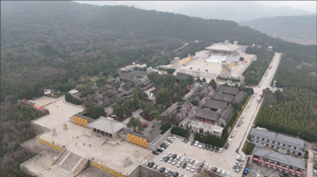
Remembrance Worship of Huang Di
Each year, on the third day of the third month of the lunar calendar, a ceremonial worship of Huang Di takes place in Henan Province, and similar ceremonies are held in various locations around the world. Thousands of Chinese people attend these ceremonies to remember our ancestors.
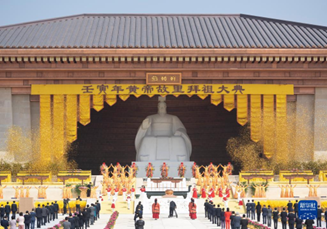
We are the Descendants of Yan and Huang
I hope you are gaining a better understanding of the Chinese people. As proud descendants of Yan and Huang (Yan Huang Zisun), we must remember that history teaches us to embrace diversity, as we are all a part of it..
